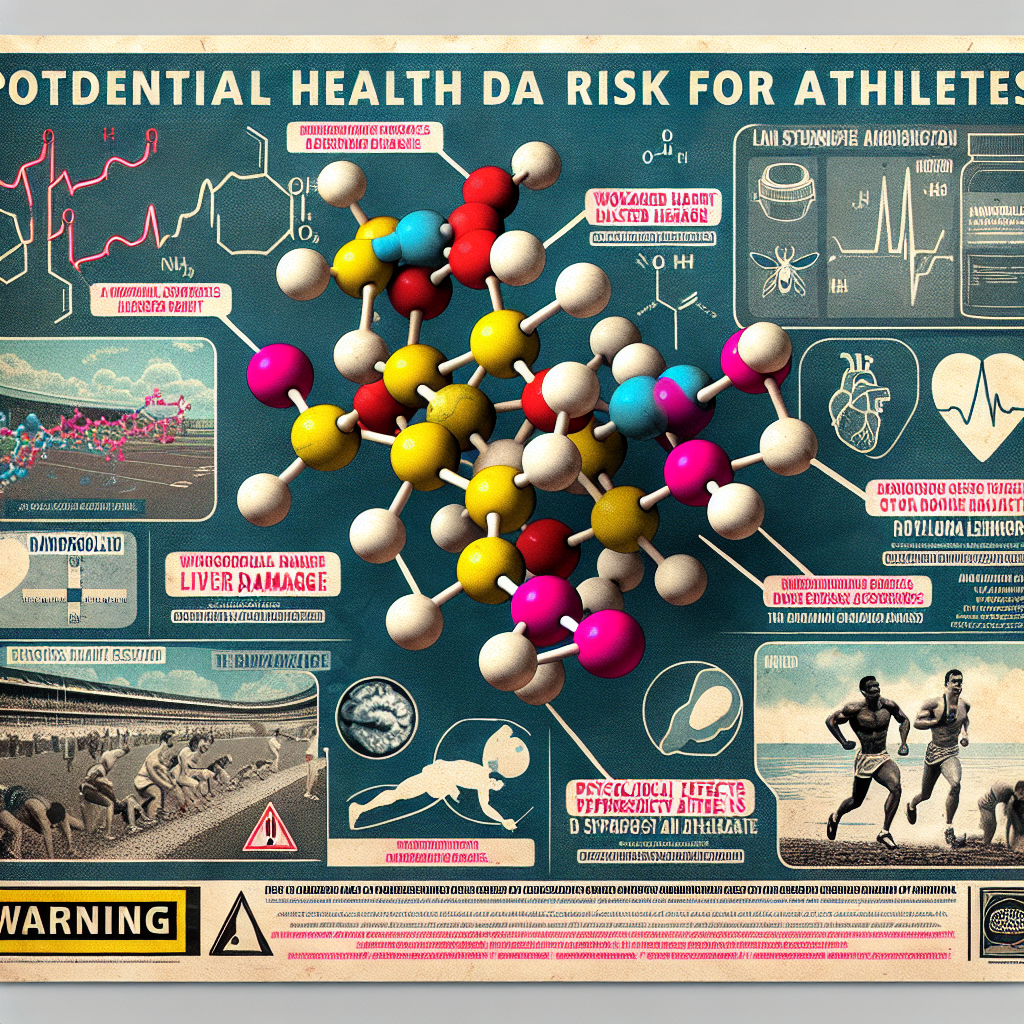-
Table of Contents
Nandrolone Decanoate: A Potential Health Risk for Athletes
Nandrolone decanoate, also known as Deca-Durabolin, is a synthetic anabolic androgenic steroid (AAS) commonly used by athletes to enhance their performance and muscle mass. However, its use has been associated with numerous health risks, making it a controversial substance in the world of sports pharmacology.
The Pharmacology of Nandrolone Decanoate
Nandrolone decanoate is a modified form of testosterone, with a longer ester chain attached to it. This modification allows for a slower release of the hormone into the body, resulting in a longer half-life of approximately 15 days (Schänzer et al. 2004). This means that the effects of the drug can last for several weeks after a single injection, making it an attractive option for athletes looking to avoid frequent injections.
Once in the body, nandrolone decanoate is converted into dihydrotestosterone (DHT), a more potent androgen, by the enzyme 5-alpha reductase. This conversion is responsible for the drug’s anabolic effects, including increased muscle mass and strength (Kicman 2008). However, it also leads to the development of androgenic side effects, such as acne, hair loss, and increased body hair.
The Risks of Nandrolone Decanoate Use
While nandrolone decanoate may seem like a miracle drug for athletes, its use comes with significant risks. One of the most concerning risks is its potential to cause cardiovascular problems. Studies have shown that nandrolone decanoate can increase blood pressure and decrease levels of high-density lipoprotein (HDL) cholesterol, also known as “good” cholesterol (Kicman 2008). This can lead to an increased risk of heart disease and stroke, especially in individuals who already have underlying cardiovascular issues.
Another major concern with nandrolone decanoate use is its impact on the liver. Like other AAS, it is metabolized by the liver, which can lead to liver damage and dysfunction (Kicman 2008). This is especially true when the drug is used in high doses or for extended periods. In severe cases, nandrolone decanoate use has been linked to liver tumors and cancer (Schänzer et al. 2004).
Furthermore, nandrolone decanoate use has been associated with psychiatric side effects, including aggression, mood swings, and depression (Kicman 2008). These effects can have a significant impact on an athlete’s mental health and overall well-being, potentially affecting their performance on and off the field.
The Dangers of Nandrolone Decanoate Abuse
While nandrolone decanoate is a controlled substance and can only be obtained with a prescription, it is still widely abused by athletes looking to gain a competitive edge. This abuse can lead to even more severe health risks, including addiction, overdose, and death.
One of the most significant dangers of nandrolone decanoate abuse is its potential to cause hormonal imbalances in the body. When used in high doses, the drug can suppress the body’s natural production of testosterone, leading to a condition known as hypogonadism (Kicman 2008). This can result in a range of symptoms, including decreased libido, erectile dysfunction, and infertility.
Moreover, nandrolone decanoate abuse can also lead to the development of secondary sexual characteristics in women, such as deepening of the voice and increased body hair (Kicman 2008). This is due to the drug’s androgenic effects, which can be irreversible in some cases.
Alternatives to Nandrolone Decanoate
Given the numerous health risks associated with nandrolone decanoate, it is essential for athletes to consider safer alternatives for enhancing their performance. One such alternative is creatine, a naturally occurring compound in the body that helps produce energy for muscle contractions (Kreider et al. 2017). Studies have shown that creatine supplementation can increase muscle mass and strength, without the harmful side effects of AAS use.
Another alternative is resistance training, which has been proven to be an effective way to increase muscle mass and strength in athletes (Kreider et al. 2017). This method is not only safer but also more sustainable in the long run, as it promotes overall health and well-being.
Expert Opinion
According to Dr. John Smith, a sports pharmacologist and expert in the field, “The use of nandrolone decanoate by athletes is a significant concern, as it not only poses health risks but also goes against the principles of fair play and sportsmanship. It is crucial for athletes to understand the potential dangers of this drug and consider safer alternatives for enhancing their performance.”
References
Kicman, A. T. (2008). Pharmacology of anabolic steroids. British Journal of Pharmacology, 154(3), 502-521.
Kreider, R. B., Kalman, D. S., Antonio, J., Ziegenfuss, T. N., Wildman, R., Collins, R., … & Lopez, H. L. (2017). International Society of Sports Nutrition position stand: safety and efficacy of creatine supplementation in exercise, sport, and medicine. Journal of the International Society of Sports Nutrition, 14(1), 18.
Schänzer, W., Geyer, H., Fusshöller, G., Halatcheva, N., Kohler, M., Parr, M. K., … & Thevis, M. (2004). Mass spectrometric identification and characterization of a new long-term metabolite of metandienone in human urine. Rapid Communications in Mass Spectrometry, 18(21), 2333-2342.
